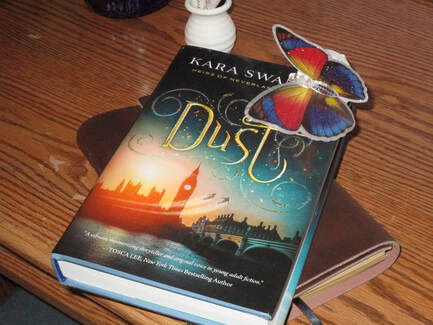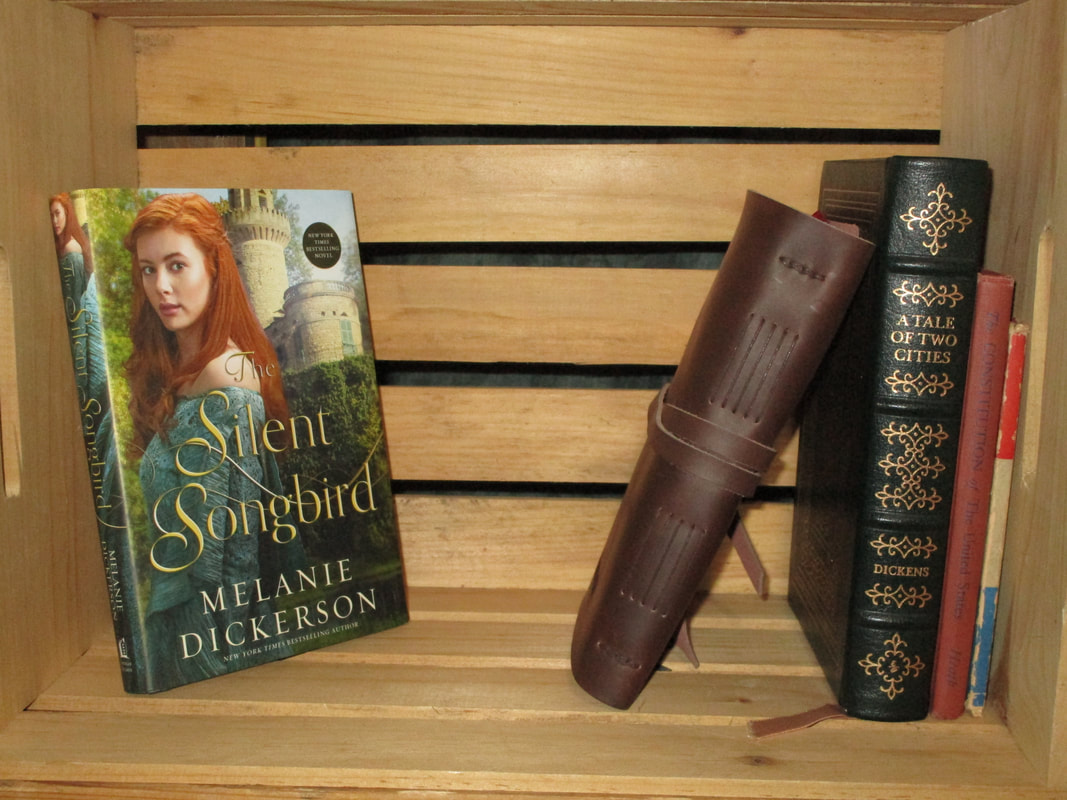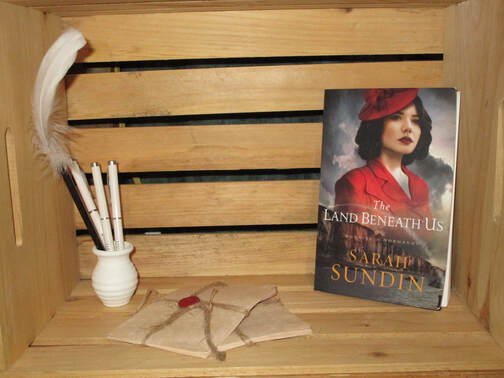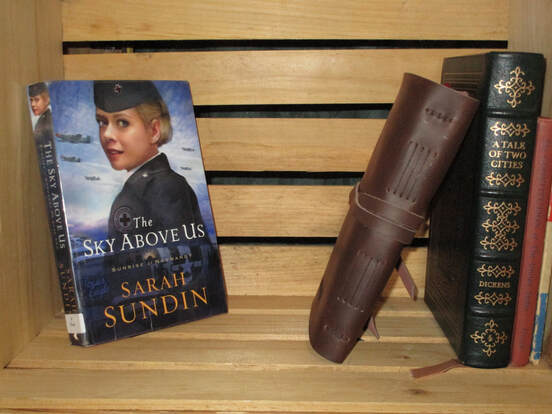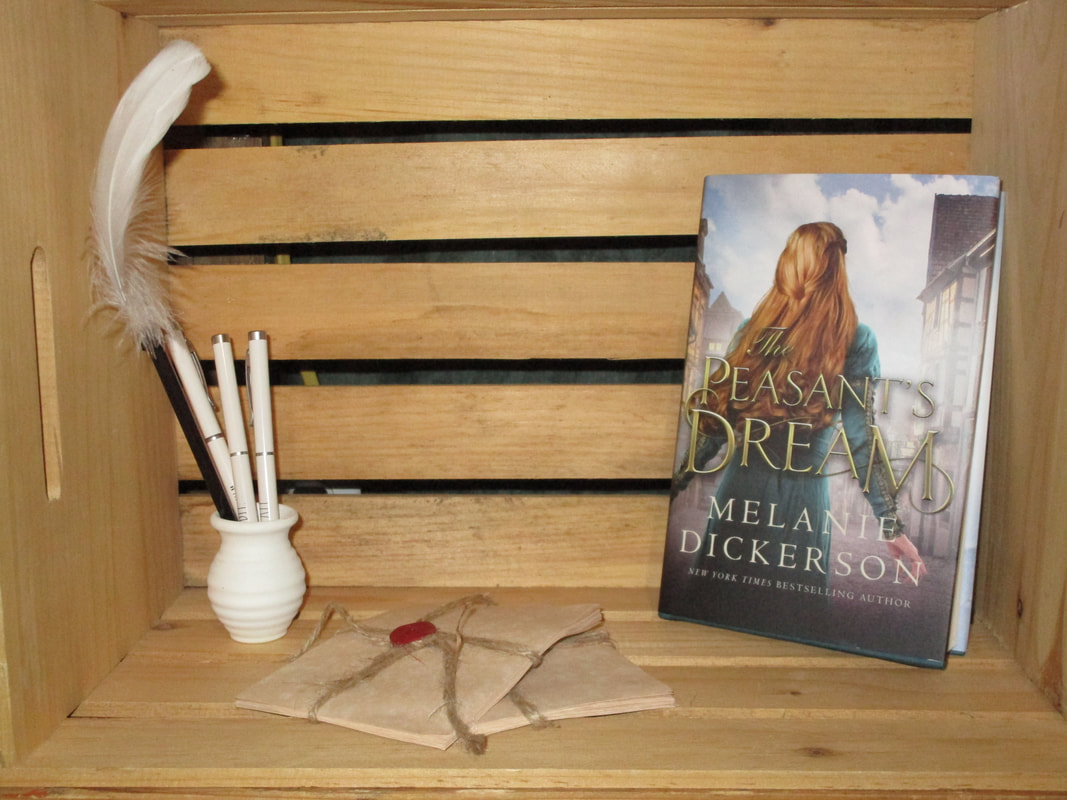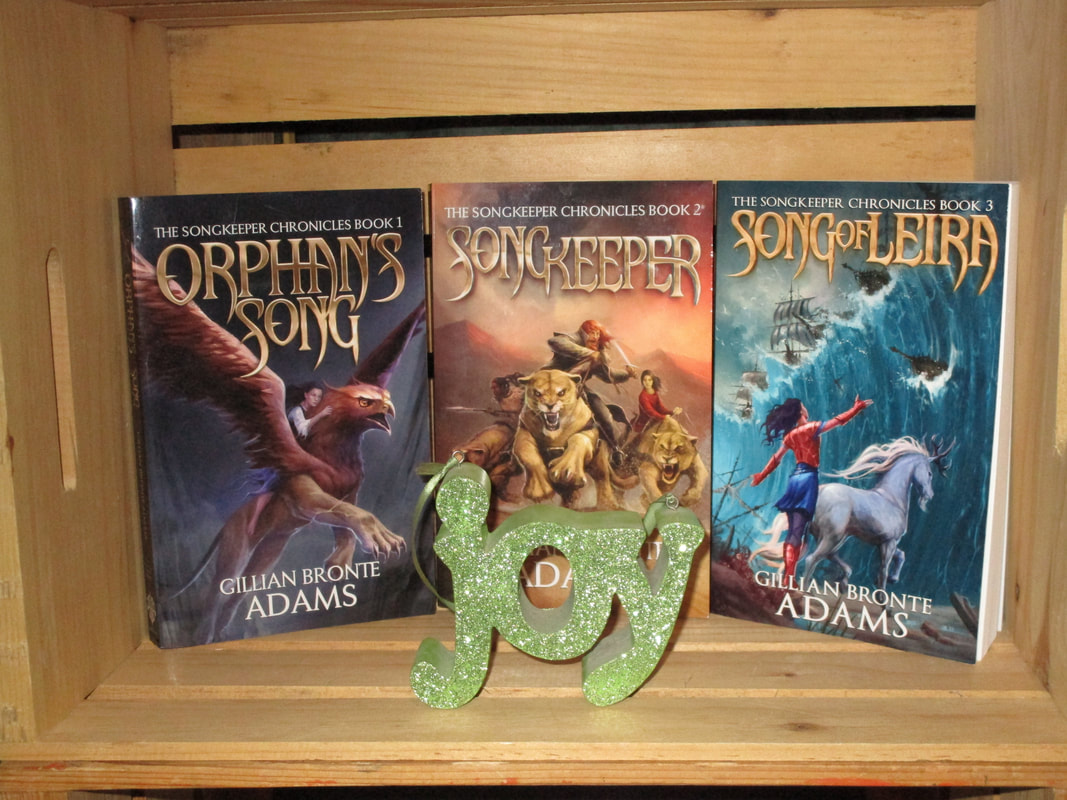|
I have been so very VERY excited for this release! (It may possibly be my most anticipated release of 2020!) Kara is one of my instructors on the Young Writer's Workshop, so I got to see some of the behind-the-scenes work (without spoilers, of course). So I eagerly counted down the days until Dust found its way to my mailbox.
I. Was. Not. Disappointed. But first, what's this Dust deal about? Claire Kenton hasn't given up on her brother. Not through anything--and she's been through a lot. Abandoned as a child, tossed in and out of foster homes, tested due to the strange dust that seeps from her skin at the oddest of times. Even losing her twin brother, Connor. Claire Kenton also hates Peter Pan. Because it was him--or his story, rather--that convinced her brother to step on a plane with a stranger to London. Which is why Claire is headed for London herself. She's about to find out that Peter Pan is no fairy tale. In fact, he's stuck in London, with a dozen things he can't remember, and all too many memories he wishes he could forget. He's hunted by his own Lost Boys, he can't fly, and worst of all, he's aging. His only hope to get back and save his island? A girl named Claire Kenton. A girl who hates him. So much was packed into this modern-day Peter Pan retelling. Almost any issue a teenager faces was addressed through this sparkling allegory, even heavier topics such as depression and suicide. The themes of self-image and facing your past flew side-by-side and never faltered. The imagery in this book is absolutely gorgeous. There were scenes that literally took my breath away. I saw it all and felt like I was there. And the character voices were largely to blame for that. Both were so unique. I was especially interested in Peter's--how Kara conveyed both this new mature side of him that he's not quite sure how to deal with, and then sometimes even in the next second, his fun-loving childish side would jump out into the light. The retelling was very interesting--hints of the original story seeped into the plot and characters, while at the same time created something entirely new. Dust has quickly become one of my most recommended books and one of my very favorite. Now I'm looking forward to Shadow's release next year!
0 Comments
Evangeline feels like a songbird trapped in a cage.
Every day, she sings for the servants and watches the world go by beneath her window. She should be happy. As the overprotective king's ward, she has everything she could ever want--save freedom. She's even engaged to be married to Lord Shively, his advisor. Alright, with a name like Shively, who could trust him, really? Rumors are he murdered his first wife, and Evangeline has seen enough to believe it of him. Evangeline will not stay silent any longer. Or rather she will. Because to disguise herself when she runs from the castle, she pretends to be mute. It seems like a perfect plan until she meets Westley le Wyse. Then it doesn't seem like a good idea at all. This is a Little Mermaid retelling without the irritating "my-parents/guardian-hate-me-they're-so-mean-because-they-like-have-rules" feel that so many of them have. Evangeline is a little headstrong, it's true. But no one can really blame her for running away from Shively, honestly. And she seeks out the right, lifts her chin, and faces the consequences when her actions don't go as planned and hurt others. This book has a fantastic view of women. It shows readers women can be strong and feminine at the same time--and that neither makes them any less to be valued. The author also did a great job when we were in Westley's head. He wants to be a strong leader, but fears he is too naive when it comes to his subjects. His and Eva's journeys together to become strong, responsible individuals (and to defeat Shively) make this one of my favorites in Melanie Dickerson's Hagenheim Series. Leah Jones has no idea who she is.
Other than a few faint memories, this orphan has no clue about her family. But she is determined to find her two sisters--one of the few things she does remember--all the same. And her journey begins at the library for soldiers. A library where Clay Paxton just also happens to frequent (you knew it was coming, didn't you?). And a library where everything about Leah is about to be attacked. It's rare to find an orphan's perspective in adult books. (Generally, they seem to show up in young adult books more.) So Leah's perspective was very interesting, especially how she views life without drama and with uncommon maturity. (And poetry, of course!) I mentioned above that everything about Leah is about to be attacked. While I used it more of a metaphor, she really is physically attacked early on in the book, which results in it having more mature content than the first two had. Clay's dream that he believes shows him how he will die was a little . . . unusual? I know that sounds super weird, but it does make sense at the end, I promise. Still, following the final Paxton brother's journey through D-day and towards forgiveness didn't disappoint. Violet Lindstrom didn't even want to be in the Red Cross, for goodness' sake.
She wanted to be a missionary to Africa or wherever, like her great-aunt Violet and personal heroine. She only signed up for the Red Cross because she thought she'd get to work with orphans and refugees. (And the small matter of getting that Red Cross recommendation for missionary service.) Well, she didn't. In fact, she's stuck at a service club for American pilots, the last people she wants to serve. But serve she does, serving donuts and coffee and trying to stick it out long enough to get that recommendation. And with a thief prowling around the club, that's looking less and less likely. Sarah Sundin grabbed me with the tension right off, when Violet learned that her best-laid plans to work with refugees and orphans had been tossed to the wind. I couldn't wait to see how she handled the less-than-ideal (so she thought) situation. The Sky Above Us also marks the introduction of Adler Paxton (brother to Wyatt from The Sea Before Us). It was interesting to see the story of the Paxton family and D-Day continue from a new perspective. And oh my goodness, the side characters! Not a one of them was dull, whether they be Red Cross volunteer or fighter pilot. Speaking of fighter pilots, the scenes in the planes were super interesting and easy to understand, even though I have no experience with airplanes (unless they're paper). Romance is a strong plot in this book, but it is a thoughtful romance. Violet and Adler think about each other and the people around them, instead of basing their relationship entirely on feelings. The strong theme of this book was very well-written. I made the realizations along with Violet, instead of feeling I'd been smacked over the head with it. It is a book that encourages readers to action in their own lives. Adela is the daughter of a duke, and she dreams of being a peasant.
All her brothers and sisters have grown up before her eyes, gone on adventures, and found their true loves. Now Adela wonders when adventure will come for her. And how it will come, considering she is a duke's daughter, and expected to make an advantageous marriage. And that's what leads Adela to disguise herself as a peasant and explore her village . . . where she meets Frederick, a farmer's son who dreams of being an artist. I've been intrigued by the premise of this book since I heard it was releasing. I'd never read a reverse Cinderella story before and was interested to see how it was. The author created an excellent reverse Cinderella character who holds tight to his dreams--but doesn't just wait to be rescued. He works towards his dreams. The author also did an excellent job of writing the perspective of a youngest daughter--a bit spoiled youngest daughter--without making her completely obnoxious. She wrote her realistically and sensibly. Granted, a good deal of the story is based on a lie. But never do we feel like Adela's less-than-honest actions are being approved of. In fact, even Adela herself sees how she could do better. While romance is a strong plot in this book, it's not a romance driven only by feelings. Both Adela and Frederick think about how their decisions will affect others. We experience the story from diverse perspective, all of them as shining as the main characters'. I loved seeing this story from two artists' eyes and felt like it made a huge contribution to the story. The faith of those who lived in medieval times is portrayed realistically, while not feeling cheesy or preachy, even while including a "miracle" scene. I have to admit, I'm sad to see Melanie Dickerson's Hagenheim Series that I've followed so long end. (And what about Toby? Please tell me he gets his own book in the next series!) The Peasant's Dream did not disappoint, and provides a sparkling conclusion to this series I've loved so well. Birdie has lived her entire life as a slave. Ky has too, in his own way, as a street thief. In fact, all of Leira is enslaved. Enslaved by a cruel king who is bleeding the life from his people to lengthen his own, and killing any and all who call themselves Songkeepers, guardians of the Song that runs through all of Leira itself.
All except one--Birdie, who doesn't even know she's a Songkeeper. The transformations of the vibrant characters is incredible. The conflict was so written that I didn't even know who to trust. (It's very important to pay attention.) The author drew examples and allegory from a lot of different places in the Bible and it was interesting to see where it would weave in next. You can tell the author was immersed in her imaginary culture--which actually posed a bit of the problem. Characters would make expressions like "they scurried off like a petra"--but we don't actually figure out what a petra is until book three. Songkeeper Chronicles are written in a storyteller form--meaning it's not non-stop action. It's just a long, rolling story of the characters' quest. For me, it felt a bit slow in some points. The protagonists seem a bit young and naive for a young adult series. A lot of the scenes are repetitive--the same type of things happen over and over again. For certain parts, that meant the characters just kept failing over and over and over again. The writing style is very lengthy and prose-y, which made it a little hard for me to keep a train of thought going and follow action scenes. There's lots of fighting. LOTS of fighting. And a lot of death. Honestly, it got a little tiring in the first two books. The deaths felt a bit glossed over and casual. The young protagonists would brutally kill someone in battle and not feel anything. The third book really made the series. The first two books were alright, but in the third, the characters were much deeper. They had to feel and act for themselves. The conflict between Ky and Slack was so realistically done, I felt sorry for Ky. The conclusion was excellent and made the whole series, slow parts and all, worth it. |
Rachel's Reads
Hi there! Rachel again. Check out this section for book reviews and cover reveals of some of my favorites! Archives
June 2023
Categories
All
|
